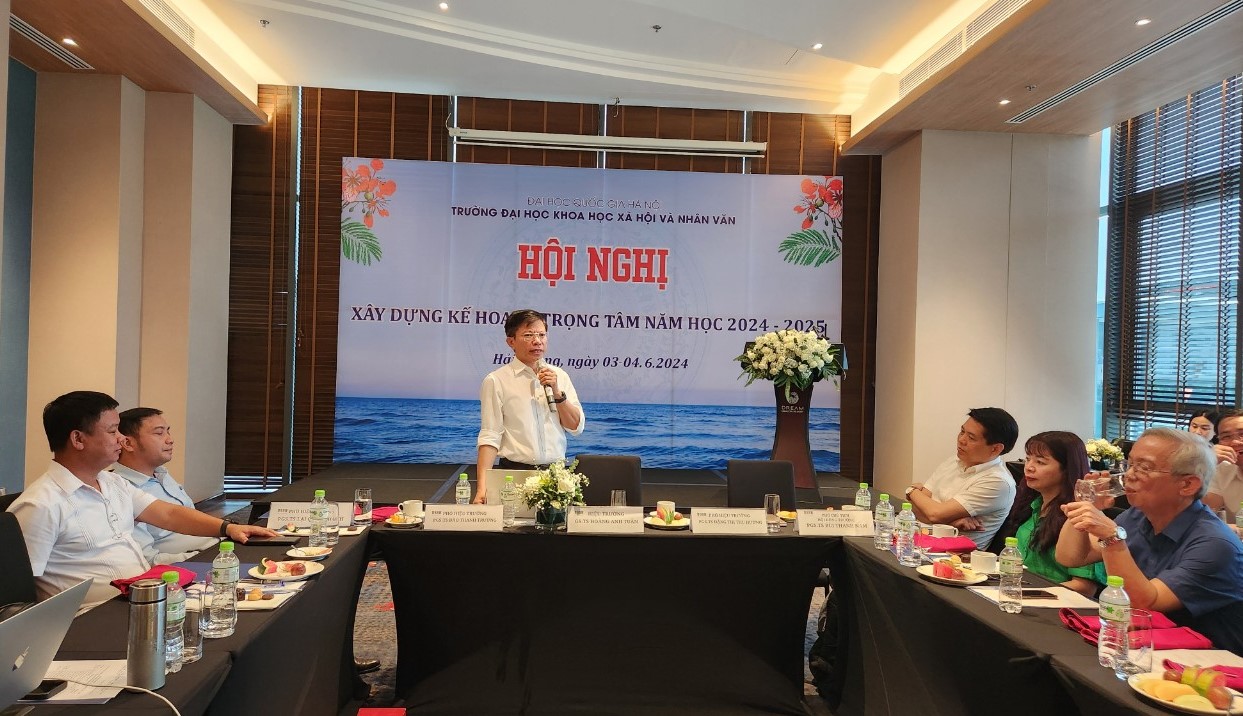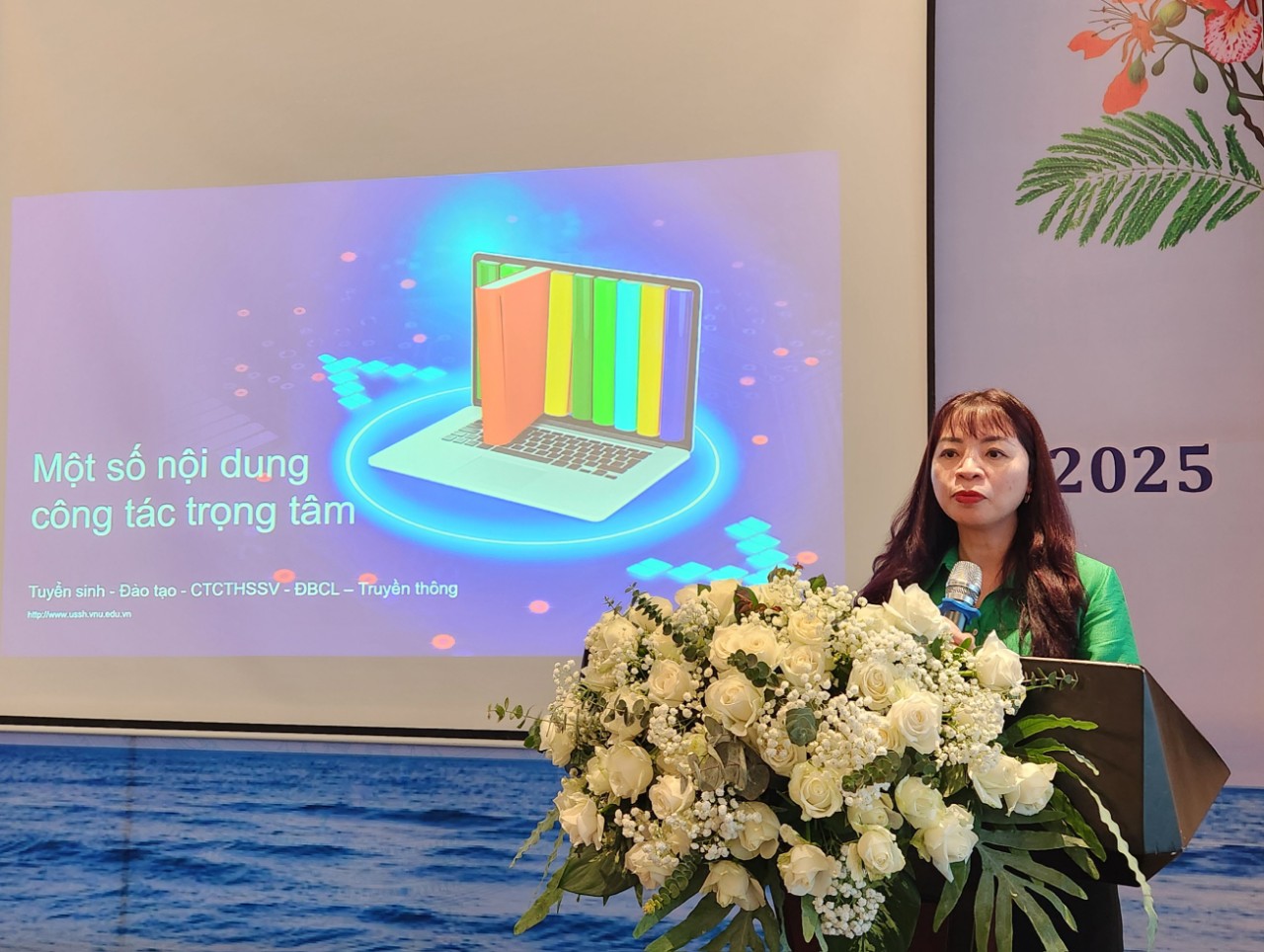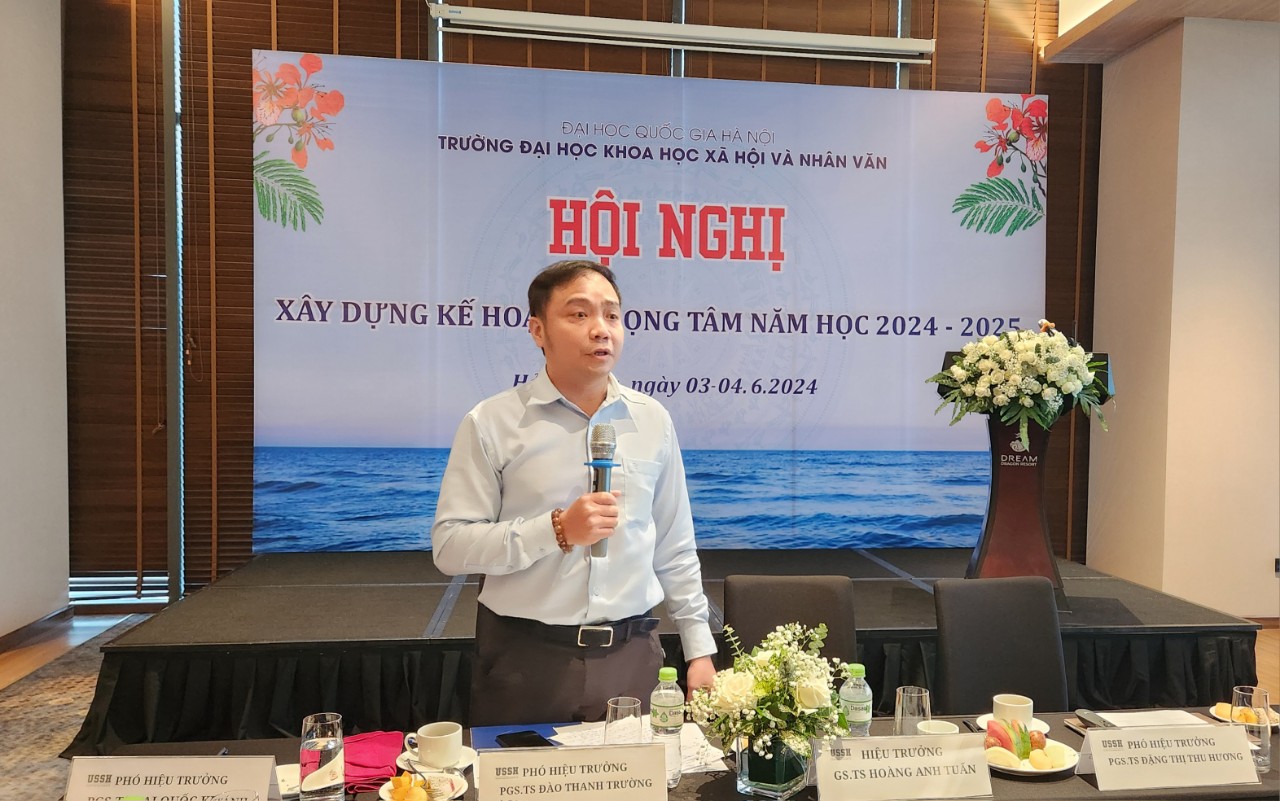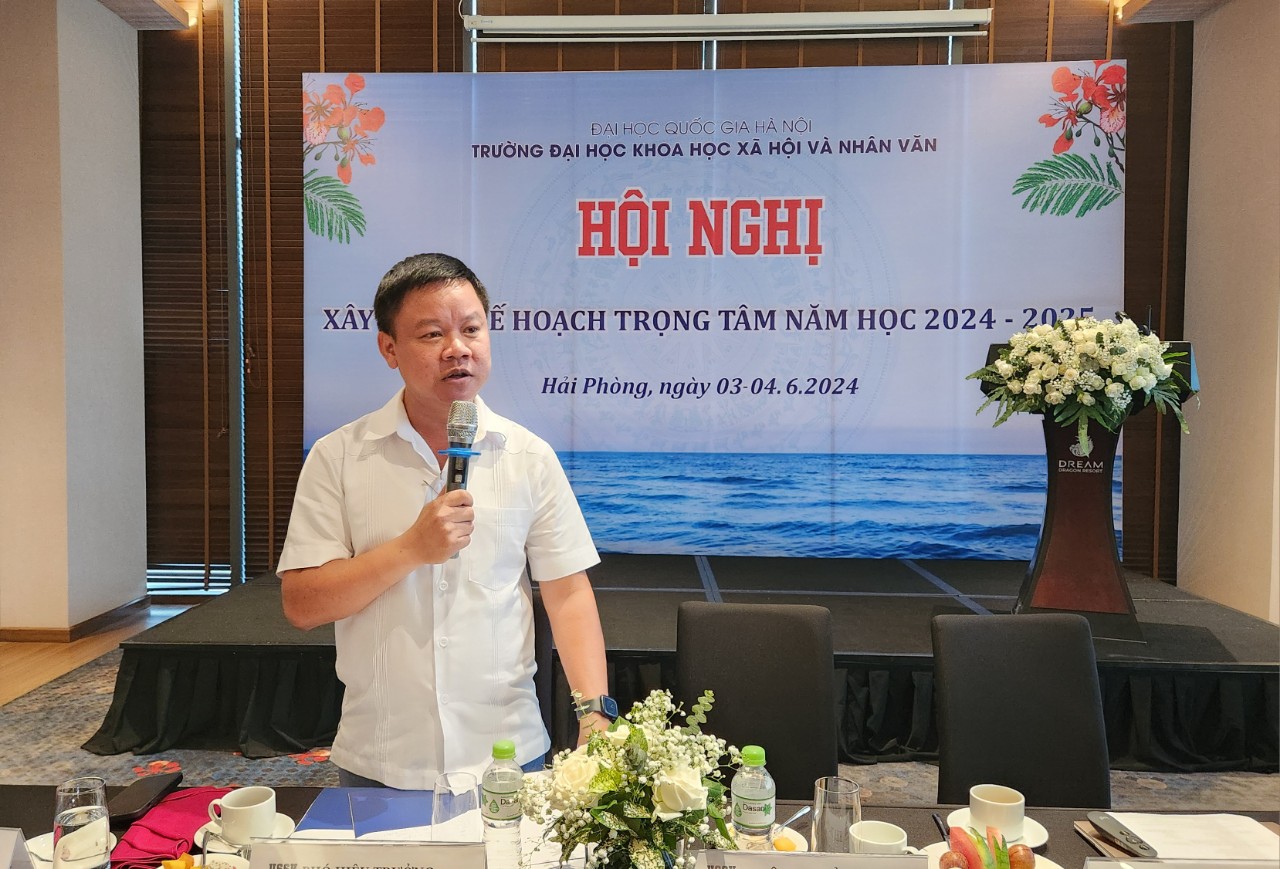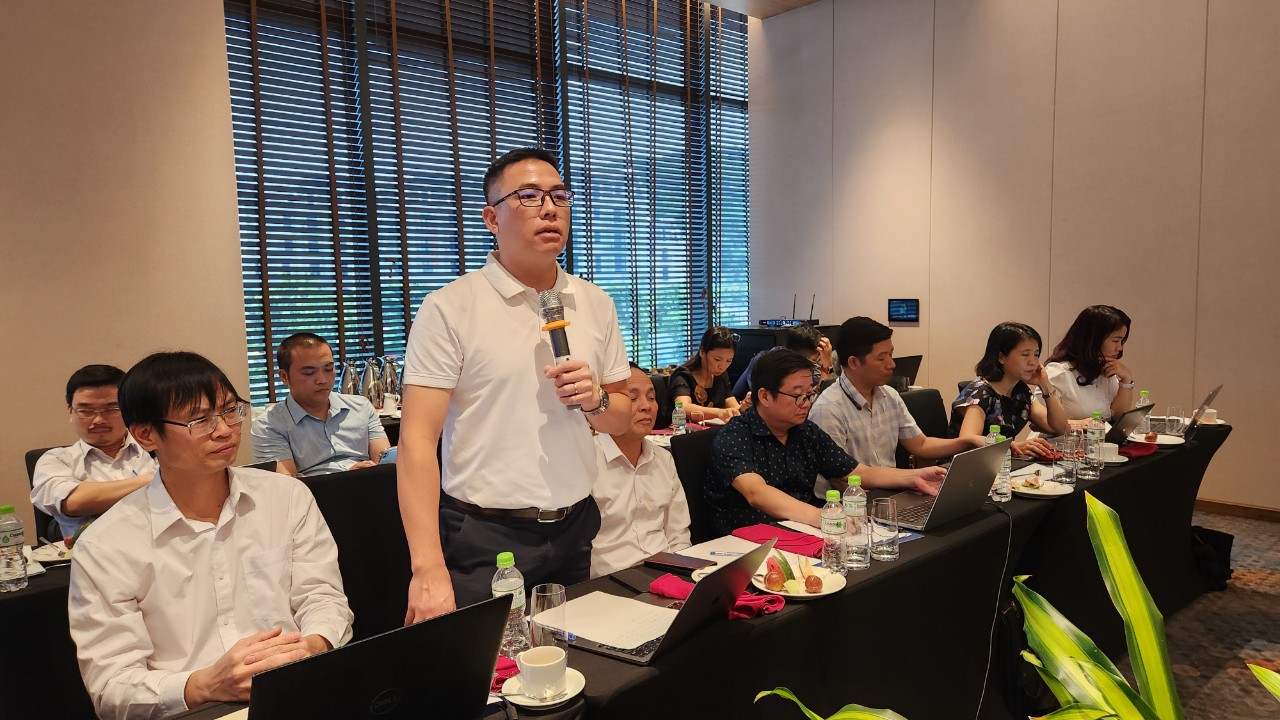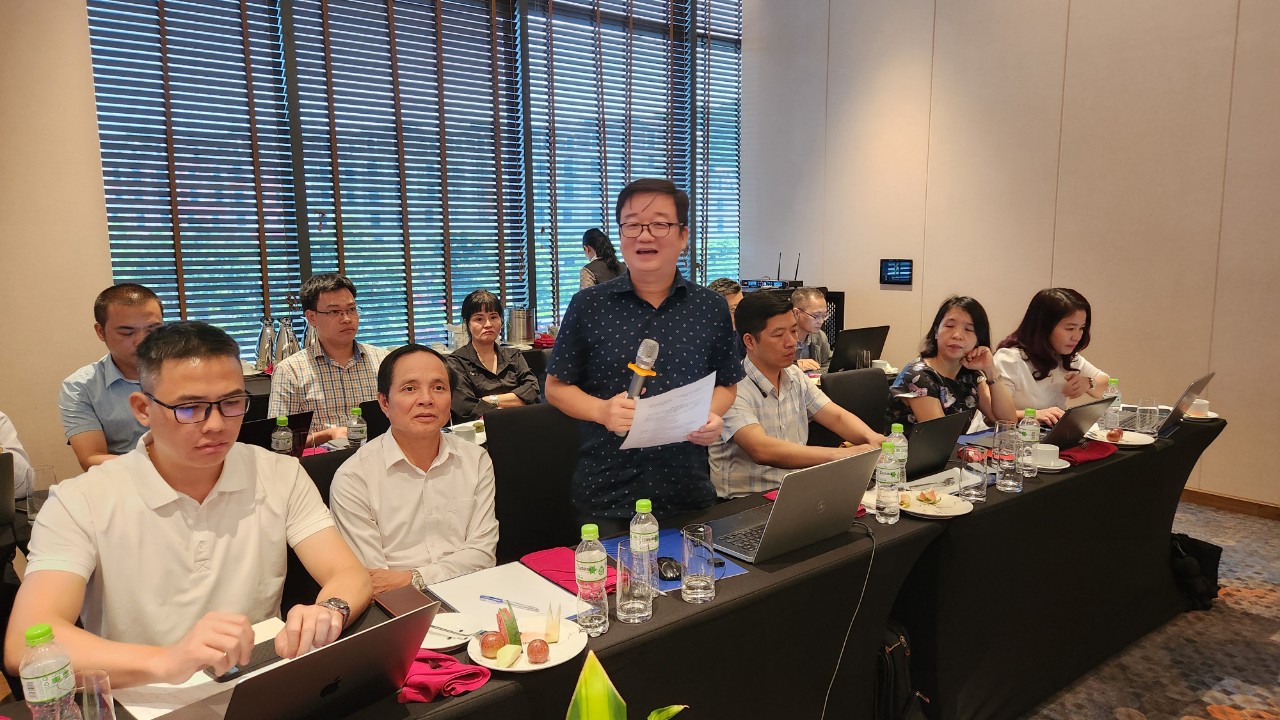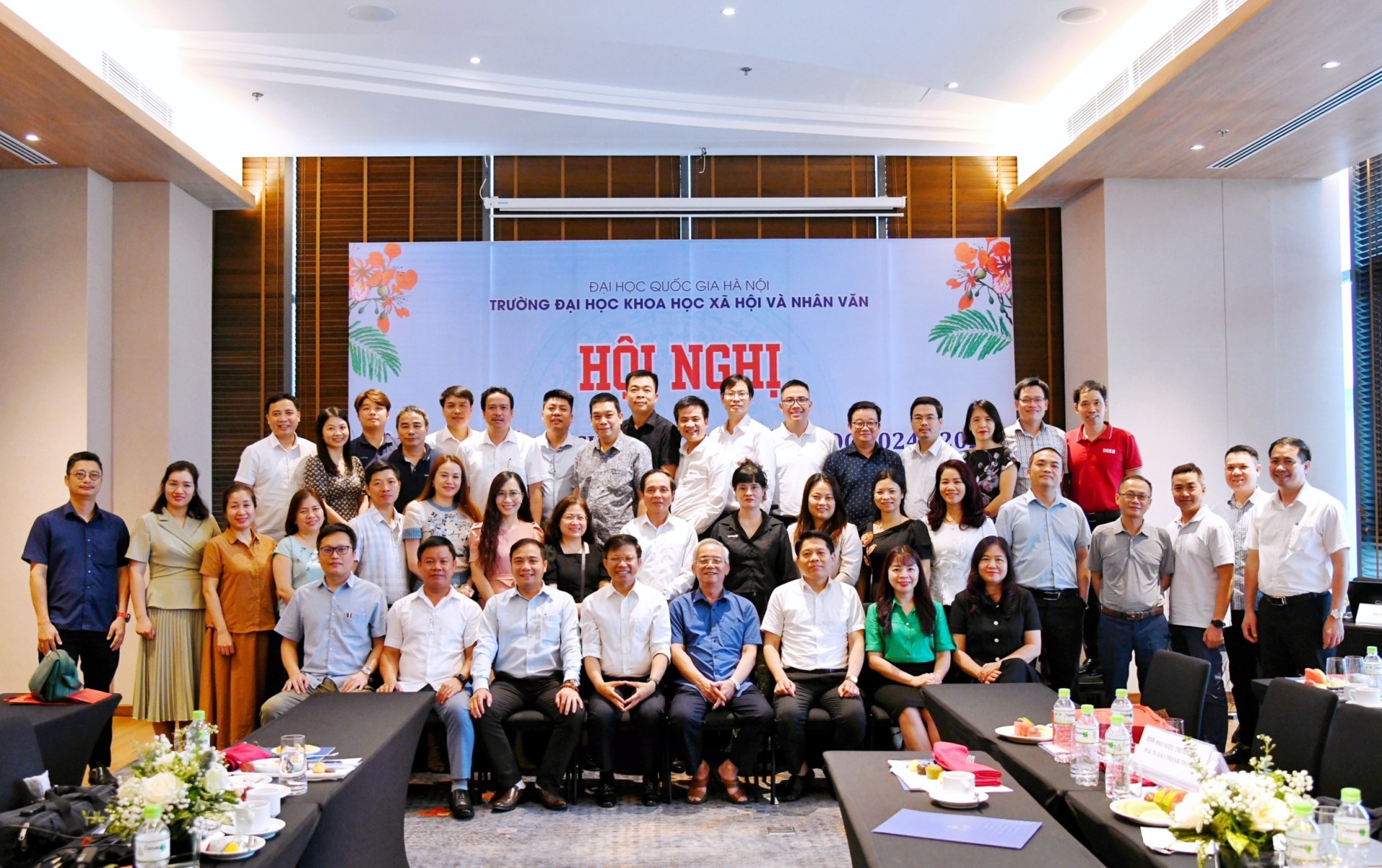At the conference, delegates focused on discussing and proposing key tasks in many important areas, including:
1. Personnel organization work
- Building a streamlined and efficient organizational structure: The organizational structure model continues to be improved, the organizational system operates synchronously, stably and is increasingly developing.
- Building a strong staff in terms of quantity and improving quality: Continue to invest in qualified staff to maintain stability and development. At the same time, promote policies to attract high-quality human resources to work at the University.
- Develop realistic, feasible plans and strategies that are closely aligned with the resources of the University. Strengthen coordination between functional departments, training units, and lecturers to effectively implement the University policies on staff development. At the same time, further strengthen inspection and evaluation work to ensure that strategies, plans, and policies are implemented in accordance with the set goals based on clear indicators and KPIs. Each individual needs to develop a 3-year to 5-year development roadmap and closely follow the plan for implementation. The University will base on each individual's plan to have appropriate training policies, which are also the basis for evaluating staff.
2. Improve training quality:
- Further improve input quality: Continue to innovate admission methods to select excellent students to study at the University. In particular, admission counseling and career orientation for candidates need to be focused on.
- Strongly innovate training programs: Update content, methods, apply advanced educational technology, focus on developing soft skills for students. In the context of increasingly developing technology, training digital capacity, applying AI in teaching and learning needs attention.
- Develop diverse training programs: Build new training programs, expand training programs towards internationalization, train high-quality masters and doctors, meet labor market needs. At the same time, integrate postgraduate training programs in an interdisciplinary direction to optimize resources.
- Developing learning resources: Promote investment in developing learning resources. In particular, it is necessary to strongly develop digital learning resources, build an electronic lecture system, and effectively make use technology to serve online teaching and learning.
- Strengthen international cooperation: Expand cooperation with prestigious universities around the world, creating conditions for students to exchange study and research. Recognize accumulated credits at domestic and international universities.
- Strengthen communication on university and postgraduate recruitment and training; short-term training, knowledge supplement; Career orientation and orientation for high University graduates; forecasting human resource needs, recruitment information; strategic orientation, socio-economic development planning related to training work associated with job creation for students; scientific activities of staff, lecturers and students of the University. In particular, training units also need to invest more heavily in this work.
3. Strongly develop scientific research:
- Identify key research areas: Prioritize areas with high development potential, serving social needs; Develop a harmonious science and technology policy both domestically and internationally; Increase investment in strong research groups, develop key research centers to anticipate investment sources from VNU and the Ministry of Science and Technology. In particular, it is necessary to institutionalize scientific research work, further strengthen cooperation between research centers and training units to effectively make use of scientific human resources.
- Support young scientists: Create conditions for young scientists to participate in domestic and international research projects, improve research capacity. Increase the organization of international conferences to support PhD students in international publications.
- Publication of research results: Increase resources for scientific research in the direction of fostering both lecturers and students. Encourage lecturers and students to publish scientific articles in the University's scientific journals and prestigious international journals. The international publication reward will continue to be maintained and adjusted accordingly.
- Develop a series of monographs and reference books in the investment direction through key research topics.
- Build a roadmap for internationalization of the Journal of Social Sciences and Humanities. Invest in building a journal website that meets international standards. Develop a team of staff capable of editing research articles in English.
4. Take good care of student affairs:
- Strengthen student support activities: Improve learning and living conditions, create a dynamic and creative learning environment. Help students access the labor market through business connection activities, organize job fairs and develop a job portal for students.
- Expand extracurricular activities: Help students develop comprehensively in terms of intelligence, physical and mental health.
- Care for students: Further expand scholarship sources, create learning conditions for students in difficult circumstances.
5. Ensuring education quality:
- Strengthen quality assessment: Apply international education quality assessment standards.
- Performance evaluation: Regularly evaluate the effectiveness of training, research, and University management activities.
- Improve the capacity of staff and lecturers: Foster pedagogical skills, teaching methods, encourage participation in international scientific conferences.
6. Development cooperation:
- Expand cooperation with businesses and localities: Strengthen training links, scientific research, and policy consulting for localities. Effectively use socialized resources. At the same time, create conditions for students to practice and in practice.
- Cooperate with international organizations: Participate in international cooperation projects, expand international student exchange programs, effectively make use internship and practical activities abroad to enhance the position of VNU-USSH in the international arena.
- Cooperate with domestic universities: Share experiences and learn from each other in training and research.
7. Building financial resources towards autonomy:
- Financial resources are guaranteed and increasing: The University continues to develop towards autonomy, diversifying revenue sources, streamlining expenditure sources, ensuring revenue sources for staff, promoting investment policies to develop staff, renovating facilities, upgrading equipment to serve teaching, research and university administration. At the same time, further increasing the University's funding sources in the coming time.
8. Developing facilities, equipment and improving university management efficiency:
- Applying information technology: Using modern management software to improve the efficiency of university administration;
- Improve administrative processes: Build streamlined and transparent administrative processes, creating favorable conditions for staff, lecturers and students. Make information transparent and enhance support for lecturers and students to effectively use facilities and equipment in the University;
- Building spacious and modern facilities: Facilities and equipment continue to be invested heavily, the appearance of the University will be increasingly spacious, green, clean, beautiful and modern. At the same time, building art spaces and cultural spaces in Hoa Lac to create favorable conditions for lecturers and students in teaching, learning and research activities;
- Strengthen inspection and supervision: Ensure strict implementation of University regulations.

